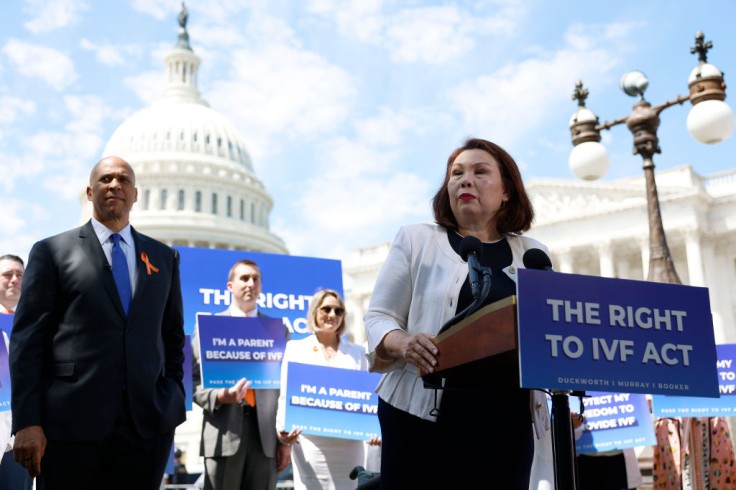
In a decisive move to protect and expand access to in vitro fertilization (IVF), Democrats are set to force a vote on the Right to IVF Act.
The proposed legislation aims to safeguard the fertility procedure that has enabled millions of families to conceive and includes measures to make it more affordable, particularly for service members and veterans.
To Expand Access and Protect Fertility Rights Nationwide
The Right to IVF Act, championed by Senators Cory Booker (D-N.J.), Patty Murray (D-Wash.), and Tammy Duckworth (D-Ill.), comprises a comprehensive package of four bills designed to prohibit states from imposing restrictions on IVF and ensure its affordability.
However, the bill faces stiff opposition from Republicans, who are expected to block it on procedural grounds, accusing Democrats of political maneuvering.
On Wednesday evening, June 12, Republican Senators Katie Britt (R-Ala.) and Ted Cruz (R-Texas) introduced their own narrower IVF Protection Act.
This alternative would withhold Medicaid funding from states that ban access to IVF but fails to address the critical issue of legal consequences for discarding nonviable embryos.
Democrats criticized this bill as "dangerous" and "a step backwards," resulting in Senator Murray blocking a vote on the GOP proposal.
Controversies and Legal Implications of the IVF Bill
The debate over IVF legislation intensified following an Alabama Supreme Court ruling that questioned whether frozen embryos created during fertility treatments should be considered children.
This ruling has significant implications for providers and doctors, with Democrats arguing that such legal interpretations could criminalize the disposal of nonviable embryos.
Senator Duckworth, who used IVF to conceive her two children, highlighted the personal and legal dangers posed by such interpretations.
She emphasized that considering a fertilized egg as a human being could lead to charges of manslaughter or murder if nonviable embryos are discarded, as in her case.
The Southern Baptist Convention's recent vote to oppose IVF and encourage government restrictions further complicates the landscape.
Despite the Alabama Legislature's swift action to resume IVF treatments and protect providers from legal liability, the absence of a clear definition of when life begins leaves room for ongoing legal and ethical battles.
Expanding Access for Service Members and Veterans
A significant component of the Right to IVF Act is the Veteran Families Health Services Act, which seeks to expand fertility treatment access for veterans and active-duty service members.
This includes provisions for freezing eggs before deployment, a crucial benefit for military personnel who often face unique reproductive health challenges due to their service.
Duckworth, an injured Army veteran who struggled with infertility for a decade, underscored the importance of this legislation.
A 2018 survey revealed that 37% of active-duty and veteran women experience infertility, a rate three times higher than the national average.
Military spouse Julie Eshelman's story highlights the real-life implications of inconsistent IVF access.
Frequently relocating due to her husband's service, Eshelman expressed concern about potential restrictions on reproductive health care in states with restrictive abortion or IVF laws. The possibility of being stationed in such a state could force military families to reconsider their service commitments.
Despite both parties expressing support for IVF, the path to a bipartisan solution remains fraught with contention. Without federal legislation, families like Eshelman's face uncertain futures regarding their ability to access fertility treatments.
As the Senate prepares for Thursday's vote, the outcome will determine the future of IVF access and affordability across the nation, particularly for those who have served their country.